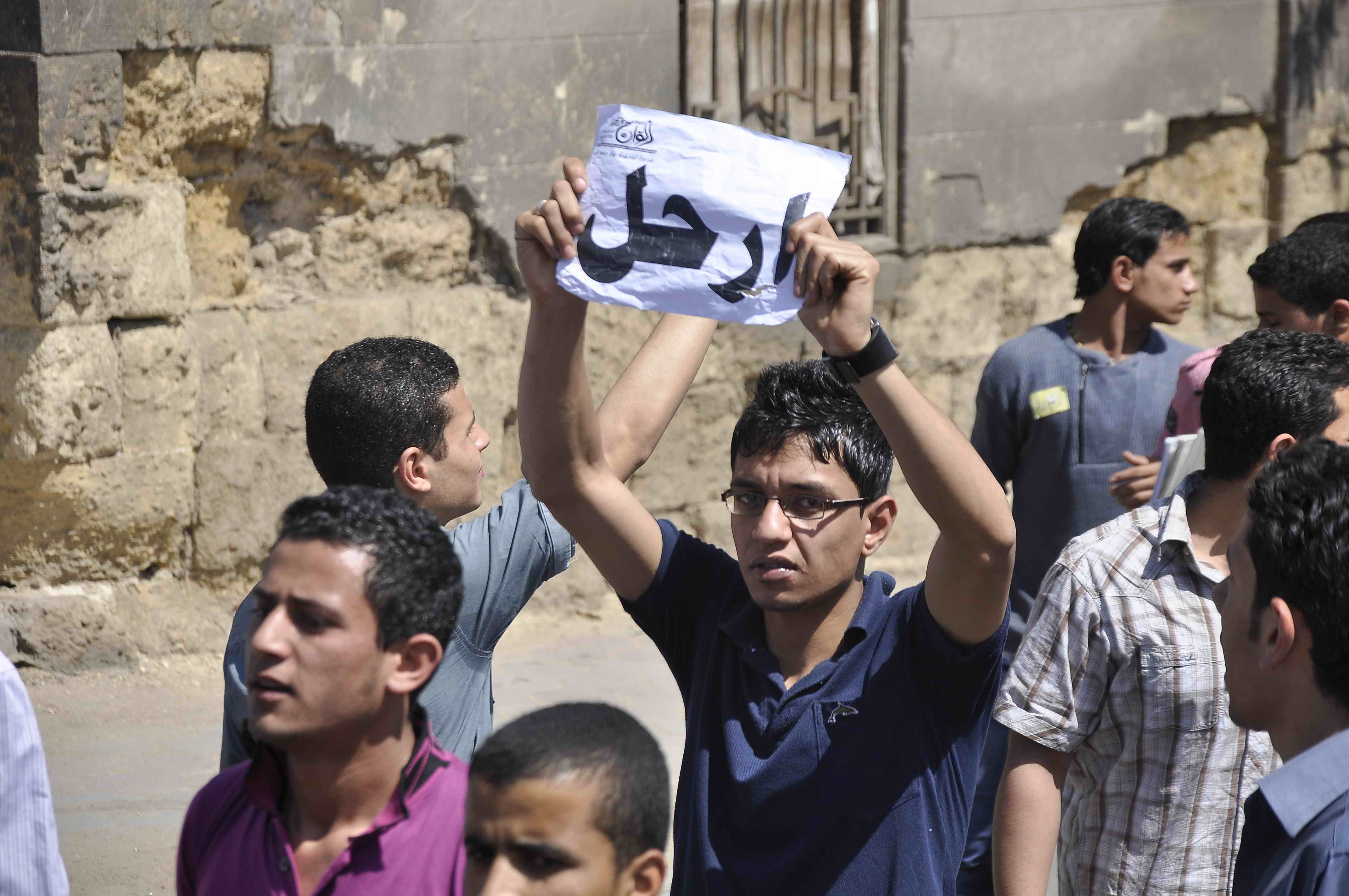
(Photo by Ahmed Al-Malky)
Prosecutor General Hisham Barakat referred Sunday 58 alleged members of the Muslim Brotherhood to military prosecution on charges of committing “terror acts” in Giza between August 2013 and October 2014.
The prosecution’s finding, as mentioned by a statement, argued that some members of the now banned Muslim Brotherhood in Qatar and Turkey have collaborated with alleged members in Giza.
This is alleged to have occurred after the dispersal of the Rabaa Al-Adaweya and Al-Nahda Square sit-ins in support of the ousted Muslim Brotherhood president Mohamed Morsi in August 2013.
They were accused of attacking public and private institutions, a prosecution statement said, adding that 17 defendants confessed of “joining the Brotherhood and committing the crimes”.
Fleeing members of the Muslim Brotherhood have been actively opposing the current regime of President Abdel Fattah Al-Sisi. The members are currently active in Qatar, Turkey, and other European countries, mostly pushing an anti government agenda in different media outlets.
The Egyptian state has been accusing members of the group of engineering plots against state institutions that target policemen, army personnel, officials, and judges. The accusations often argue that high ranking members from abroad give guidance and financial support to members in Egypt.
On Monday, the Interior Ministry announced the arrest of tens of Muslim Brotherhood members across Egypt on different charges, ranging from planting bombs, killing police officers, and attacking police facilities.
The ministry said the arrested members were “convinced by high profile group leaders that police and army personnel are representatives of “an oppressive authority”.
In Gharbeya governorate, the ministry announced the arrest of 28 Muslim Brotherhood members accused of planting homemade bombs in different populated areas.
Last week, a “foiled plot” was announced by Egyptian state TV last week, where a propaganda video showed a number of defendants allegedly confessing the details of the “plot”. All of the featured defendants can be heard using the same terminology whilst speaking. Further, they identify other defendants and alleged collaborators, giving them the title “Al-Ikhwani”, inferring that they belong to the Muslim Brotherhood.
In a recent statement, the Brotherhood held security officials responsible for the safety of “hundreds of kidnapped members of the guidance bureau”. The group showed its concern about the health conditions about the members “after knowing that security forces are using inhumane methods like torture”.
The group which has been facing a severe crackdown and military tribunals by security forces has repeatedly claimed that its members aim to reach their goals through peaceful means.
Since the ouster of former Islamist President Mohamed Morsi in July 2013, scores of defendants have stood trial in front of military courts.
In March, at least 363 civilians have been referred to military trials on charges of belonging to the Muslim Brotherhood and engaging in violent incidents during protests.
Six convicts in the ‘Arab Sharkas cell’ were executed on 17 May after the Supreme Military Court sentenced them to death in October for killing military and police personnel.
President Abdel Fattah Al-Sisi has recently issued a decree which expanded the jurisdiction of military courts to include anyone who attacks the state’s “vital” facilities.
Various human rights organisations condemned the law, including Human Rights Watch, which stated that the law gives military courts “the widest legal authority since the birth of Egypt’s modern republic in 1952”.

